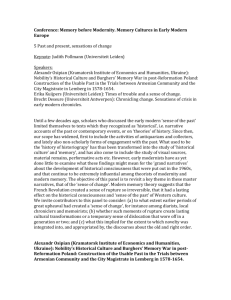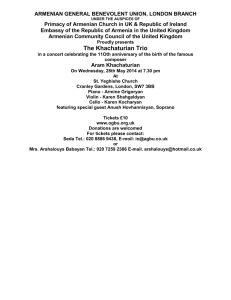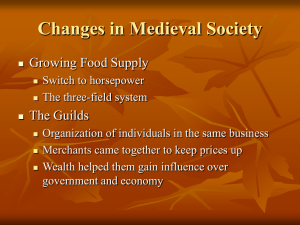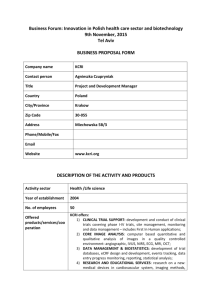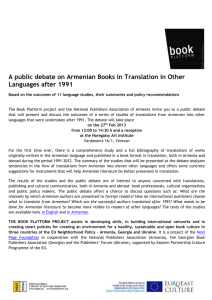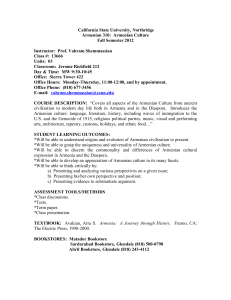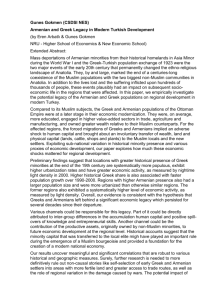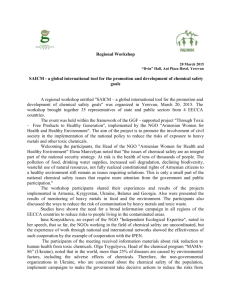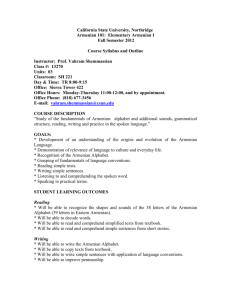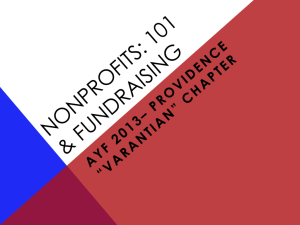Nobility`s Historical Culture and Burghers` Memory War in post
advertisement
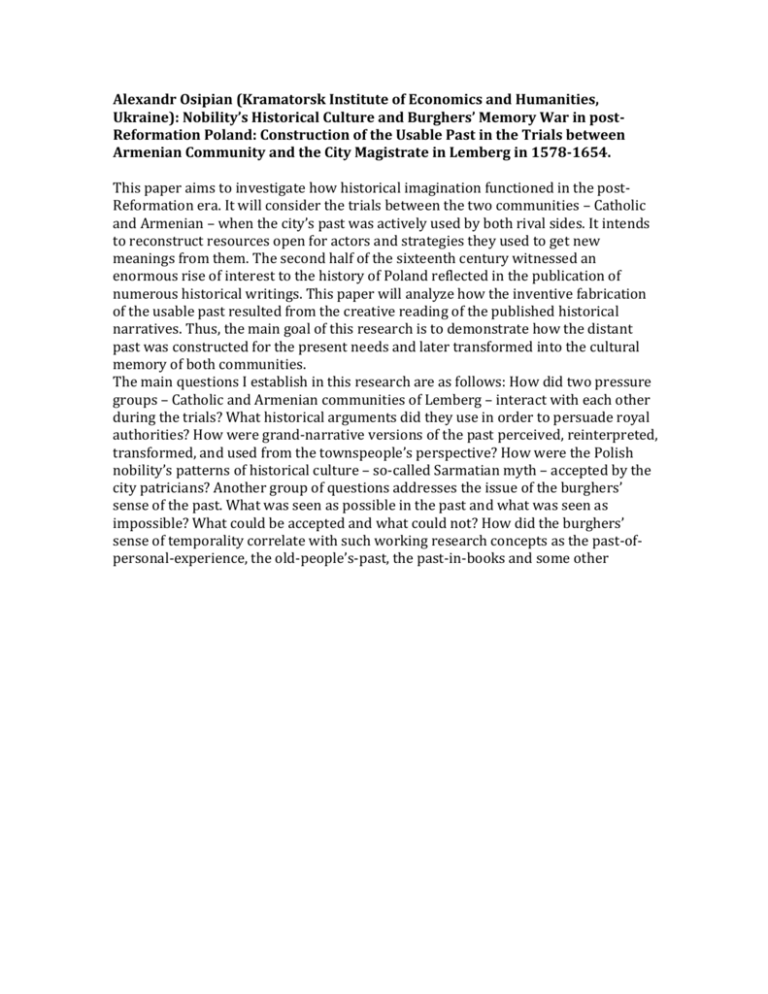
Alexandr Osipian (Kramatorsk Institute of Economics and Humanities, Ukraine): Nobility’s Historical Culture and Burghers’ Memory War in postReformation Poland: Construction of the Usable Past in the Trials between Armenian Community and the City Magistrate in Lemberg in 1578-1654. This paper aims to investigate how historical imagination functioned in the postReformation era. It will consider the trials between the two communities – Catholic and Armenian – when the city’s past was actively used by both rival sides. It intends to reconstruct resources open for actors and strategies they used to get new meanings from them. The second half of the sixteenth century witnessed an enormous rise of interest to the history of Poland reflected in the publication of numerous historical writings. This paper will analyze how the inventive fabrication of the usable past resulted from the creative reading of the published historical narratives. Thus, the main goal of this research is to demonstrate how the distant past was constructed for the present needs and later transformed into the cultural memory of both communities. The main questions I establish in this research are as follows: How did two pressure groups – Catholic and Armenian communities of Lemberg – interact with each other during the trials? What historical arguments did they use in order to persuade royal authorities? How were grand-narrative versions of the past perceived, reinterpreted, transformed, and used from the townspeople’s perspective? How were the Polish nobility’s patterns of historical culture – so-called Sarmatian myth – accepted by the city patricians? Another group of questions addresses the issue of the burghers’ sense of the past. What was seen as possible in the past and what was seen as impossible? What could be accepted and what could not? How did the burghers’ sense of temporality correlate with such working research concepts as the past-ofpersonal-experience, the old-people’s-past, the past-in-books and some other
